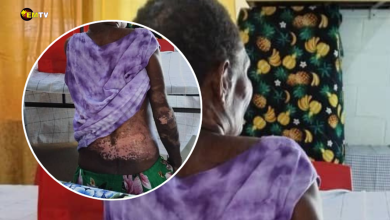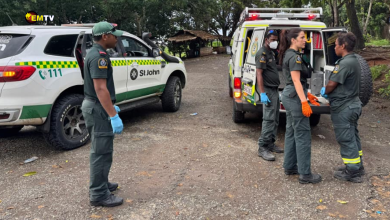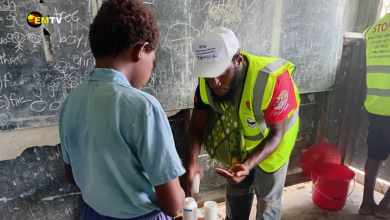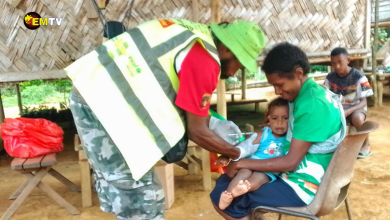Venezuelans suffer as malaria outbreak spreads in drug-short nation
By Maria Ramirez
CIUDAD GUAYANA, Venezuela (Reuters) – On a recent morning in Venezuela’s southern jungle state of Bolivar, Amanda Santamaria, her two sons, one daughter-in-law, and a granddaughter lined up in front of a shabby community health center in the hope of receiving treatment for malaria.
All five of them are afflicted by the mosquito-borne disease, which is rapidly spreading through Venezuela as an economic meltdown strips the country of medicine and doctors.
“We don’t know if this is a curse, but the entire area is awash in malaria,” said Santamaria, 56, suffering her second bout of the illness in the last three months and relying on palliative herbal teas because she has not found regular drugs.
The family was waiting with some 500 others under the scorching sun in the hope of receiving treatment.
People lay on the grass outside a health center as they wait to get treatment for malaria, in San Felix, Venezuela November 3, 2017. Picture taken November 3, 2017. REUTERS/William UrdanetaUnsanitary conditions in Bolivar are thought to have led to a recent flare-up in malaria, a life-threatening disease that had been largely brought under control in Venezuela in the 1990s.
The outbreak was likely initially caused by illegal mining. The miners cut down rainforests and often work in pools of stagnant water, which favors the spread of mosquitoes and malaria.
In a rare release of data earlier this year, government statistics showed there were 240,613 cases of malaria last year, up 76 percent compared with 2015, with most in Bolivar.
The former Health Minister was fired after the data was published, and it has not been updated since.
The government did not respond to a request for comment on the malaria outbreak.
On a visit to Bolivar in early November, the vice minister for health, Moira Tovar, said the outbreak in the state would be controlled within three months. She said that 32 people had died during just one week in late October.
“What are (these deaths) due to? They’re due to people who are infected and who know about the illness but don’t visit health centers on time. Instead they wait for the condition to worsen before seeking attention,” she said.
MALARIA SPREADS TO CITIES
The government has not given an overall death toll.
But health activists and doctor groups estimate that around 200 people have died from malaria over the last year nationwide, and fear the illness is starting to afflict populated urban centers.
“The mines have a high proportion of young adults, but their kids and pregnant partners are in the cities, and that’s a bigger problem: the entire family is at risk of falling ill,” said doctor and former health minister Jose Felix Oletta, a government critic.
The regional arm of the World Health Organization last month announced the arrival of over one million anti-malarial pills, which doctors deem insufficient. Patients must visit their nearest health center up to four times to complete treatment in what officials say is an attempt to avoid feeding the black market for drugs.
Still, in Venezuela’s shortages-hit economy, there is a black market for nearly everything.
“In the mines they offer you pills for a gram and a half of gold,” said Yudith Sanchez, a 28 year-old cook in an illegal gold mine.
Others have turned to brewing bark from cinchona trees, which was popular during the colonial era for its antiseptic properties.
“We’re going to die because there is no treatment,” said homemaker Yaritza Figuera, 29. Suffering from malaria, her nine year-old son sat on the floor in a health center because the waiting room was full.
(Reporting by Maria Ramirez, Writing by Eyanir Chinea and Alexandra Ulmer, Editing by Rosalba O’Brien)
Copyright 2017 Thomson Reuters. Click for Restrictions.







